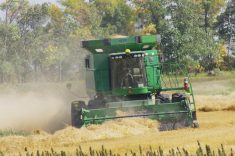The World Bank and International Monetary Fund are warning poor regions that have so far not been hit by rising food prices, like sub-Saharan Africa and the Caribbean, to get ready to face them.
Food price volatility is here to stay, the World Bank cautioned, amid growing worries there could be another full-blown food crisis only three years after the last one.
In some parts of the world, weather-related supply shocks have pushed up prices, and there is a likelihood of substantial long-term increases. Food problems will be tackled at meetings of the Group of 20 major economies this year in France.
Read Also

Farm trade policy pundits lay CUSMA odds
What’s the future of Canada’s free trade agreement with the U.S. and Mexico? Policy experts try to read the stars on the issue
The possibility of a full food crisis “is a concern and countries should be getting ready for it,” said Hugh Bredenkamp, deputy director of the IMF’s Strategy, Policy and Review Department.
The IMF’s advice to governments faced with rising food prices is to focus social protection measures on the poorest; to resist export bans or export taxes that disrupt global food markets; and to ensure that higher food prices do not translate inadvertently into monetary policy tightening.
“The direct impact of food prices on CPI is a one-time thing, but in itself is not inflation, so countries should accommodate … set monetary targets to accommodate the direct impact from price jumps,” said Bredenkamp.
“But countries need to be careful not to allow second-round effects, so if food prices go up (they) don’t want that to spill into higher wages or prices of other products,” he added.













